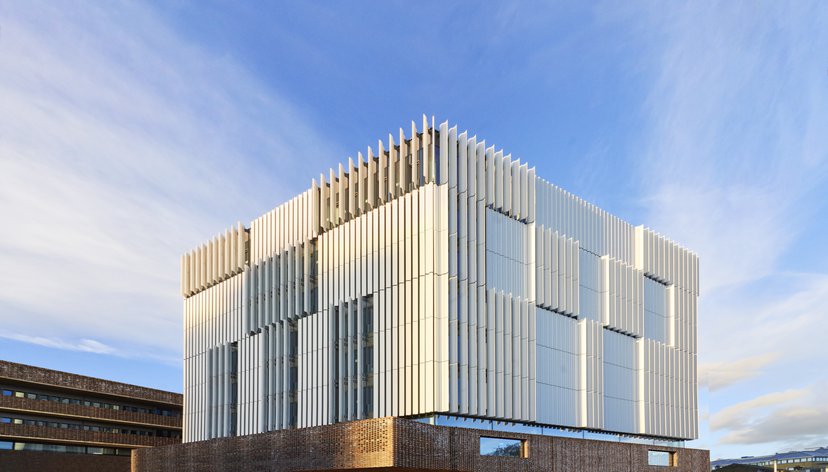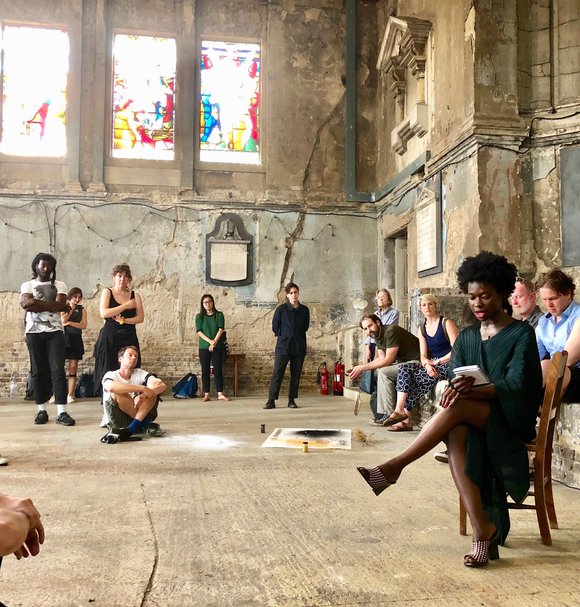Equality and Diversity Policy
Jump to
The aim of this policy is to ensure that everyone is treated fairly, irrespective of any protected characteristic, social background or culture, trade union membership or part-time status.
This policy was last reviewed by the Senior Management Team in June 2023.
This policy was last approved by the Equality and Diversity Committee in May 2023.
RCA General Statement on Anti-Discrimination
The RCA stands firmly against unlawful discrimination in all its forms against staff, students and visitors with protected characteristics as set out in the Equality Act 2010 (age, sex (gender), sexual orientation, race, religion or belief, disability, gender reassignment, marriage and civil partnership, pregnancy, and maternity). In addition, we will not tolerate discrimination on the grounds of any other characteristics or circumstances including, but not limited to ethnic or national origin, socio-economic background, and trade union membership status.
The College is committed to fostering a positive culture where all staff, students, and visitors can flourish and where no-one will feel compelled to conceal or play down elements of their identity for fear of being stigmatised. Our staff have the right to work and our students the right to study, in an environment which is free from bullying and harassment and gives them the dignity and respect to which they are entitled.
The College is committed to eradicating unlawful discrimination, will promote equality, diversity, and respect for all and create an environment where individual differences and contributions are recognised and valued, in our policies and procedures as well as in the way that we communicate and engage with each other.
The following are the kinds of discrimination for which the RCA is working towards a policy of zero tolerance. Any act of discrimination or harassment on unlawful grounds or failure to comply with our policies and procedures will result in a thorough investigation which may lead to disciplinary action for our staff or students.
- Direct discrimination – treating someone with a protected characteristic or different circumstances less favourably than others ·
- Indirect discrimination – putting rules or arrangements in place that apply to everyone, but that put someone with a protected characteristic or different circumstances at an unfair disadvantage.
- Harassment – unwanted behaviour linked to a protected characteristic or different circumstances that violates someone’s dignity or creates an intimidating, hostile, degrading or offensive environment for them.
- Victimisation – treating someone unfairly or badly because they have, or are thought to have, made a complaint about discrimination or harassment, or helped someone else make a claim of discrimination under the Equality Act 2010.
More Information on the College Anti-discrimination statements can be found on the College Website
Purpose
- The College is committed to providing an environment free from discrimination, bullying, harassment, or victimisation, where all members of its community are treated with respect and dignity. It aims to create a culture of diversity within its community, providing a dynamic working and learning environment, where all members are valued for their contribution and individuality.
- We are committed to providing equality of opportunity for all, irrespective of:
- age
- disability
- ethnicity (including race, colour, and nationality)
- gender (including gender reassignment, gender identity, marital status, pregnancy, or maternity)
- religion, belief
- sexual orientation (including civil partnership status)
- Socio Economic background
Scope
3. The College is an institution operating in a local, national and international context.
4. The policy is applicable to all staff, students, and applicants. The principles of non-discrimination and equality of opportunity also apply to the way in which staff and students, visitors, contractors, sub-contractors, service providers, suppliers and any other persons associated with the functions of the College should treat each other.
5. We will work to ensure that all of our students, employees and visitors, as well as those who seek to apply to work or study with us are treated fairly and are not subjected to unlawful discrimination in any form.
Aim
- The College aims to promote equality of opportunity for all, through the following objectives:
- mainstreaming equality into the College’s strategic and planning agenda;
- complying with its legal obligations;
- having an effective data monitoring and analysis process that supports this policy;
- assessing the impact on equality in our policies, procedures and practices at the College;
- involving staff, students and other stakeholders in the development and delivery of our equality objectives;
- ensuring that managers and staff undergo appropriate equality training for their role;
- promoting and including equality, diversity and inclusion through internal and external communications.
- ensuring staff and student support services are accessible to all.
- ensuring that both existing staff and students, as well as those who seek to apply to work or study with us, are treated fairly and that individuals are judged solely on merit and by reference to their skills, abilities, qualifications, aptitude, and potential.
- ensuring that staff, students, and their unions’ representatives are provided with appropriate forums (e.g.,Senior Management Team (SMT),The Planning and Resources Committee (PRC) and the College Equality and Diversity(EDI) Committee, Resource groups and Working groups)) and resources to discuss, develop and share good practice to resolve equality and diversity issues and concerns.
- Have access to Report and Support, a service for students and staff through which they may make an anonymous disclosure or a full report on an incident of bullying, racism, harassment and/or sexual misconduct. Report and Support will provide information on support options, internal and external to RCA, and will direct the staff member or student on how to make an informal or formal complaint (where necessary)
- ensuring that all contractors and service providers operating on behalf of the College are aware of this policy and expected to adhere to it.
Implementation
7. The College community as a whole, shares responsibility for the successful application of this policy, whilst specific responsibility falls on managers and advisors who are professionally involved in staff and student support, development and supervision.
8. The College is committed to developing initiatives to support all minority groups that have been disadvantaged in the past and to help address some of the imbalances which may still exist between its staff and student populations and the college community. The College will not, however, permit positive discrimination.
9. The College will seek to ensure that all staff and students have equal access to the full range of institutional facilities and that adjustments to working and learning practices are considered wherever reasonably possible in order to accommodate a more diverse community.
10. Any staff member or student who believes that he/she/they may have been the victim of discrimination, bullying, harassment or victimisation shall have recourse to the College’s relevant procedures – Anti-Bullying, Harassment and Victimisation (staff members) and the Student Complaints Policy (students). The College is committed to finding resolution for complaints under these procedures.
11. The College will work in partnership with recognised trade unions and the Students’ Union as well as external organisations where appropriate to combat all forms of unlawful discrimination.
Roles and Responsibilities
12. Council has ultimate accountability for compliance with the College’s equality obligations and will receive annual reports from the Planning and Resource Committee that is responsible for the Equality and Diversity Committee. The Chief Operating Officer has overall formal responsibility for the Equality and Diversity Policy. The Head of Equity and Inclusion with Human Resources and the Head of Student Support will ensure the policy is reviewed and revised, as necessary.
- Staff and students have a responsibility to:
- understand this policy and the related procedures and to contact their manager, Human Resources or Registry with any questions;
- challenge or report inappropriate behaviour or any discrimination in accordance with the relevant procedure.
- Managers have a responsibility to:
- set a good example by treating all members of the College with dignity and respect;
- correct unacceptable behaviour;
- ensure staff and students know how to report discrimination, bullying and harassment.
- ensure that reporting incidents does not result in victimisation;
- deal with complaints fairly, thoroughly, quickly and confidentially;
- ensure that due consideration is given to equality and diversity within their sphere of influence.
- Human Resources is responsible for considering all existing and emerging equality legislation with a view to identifying relevant issues, which are then translated into the relevant College policies and procedures. Human Resources is also responsible for:
- supporting the implementation of the College's equality objectives through involvement and consultation;
- data monitoring, analysis and policy development;
- designing and delivering training and awareness raising campaigns;
- providing advice, support and guidance on related issues.
Complaints
16. Any cases of harassment, discrimination, bullying or victimisation will be taken very seriously by the College. Any member of staff or student found guilty of unlawful discrimination or harassment will be subject to disciplinary action, including where appropriate, dismissal/termination of registration for gross misconduct.
17. Staff, students or other parties who make a complaint of discrimination have the right to do so without fear of victimisation and the College will make every effort to ensure victimisation does not occur and that any complaints are dealt with promptly and fairly.
18. The Anti-bullying, Harassment and Victimisation Procedure and the Student Complaints Policy are accessible on the College intranet and will guide the reader through how to make a complaint.
19. Any member of the public who wishes to make a complaint should address their complaint to the College school or department in question, in the first instance.
20. Human Resources will be happy to help with enquiries relating to discrimination, harassment, bullying or victimisation.
Equality Objectives
21. The equality objectives outline how the College will respond to its public sector equality duties. The key objectives have been identified in order to support the integration of equality of opportunity into all areas of the College and are directly linked to the College's overarching strategic agenda.
22. Progress against the College’s equality objectives will be measured using a variety of qualitative and quantitative methods. The Equality and Diversity Committee will receive termly monitoring reports that ensure progress is tracked and evaluated.
Staff

Izzie Kpobie-Mensah
Head of Equity and Inclusion

Fiona Dorrington
Equity, Diversity and Inclusion Officer



